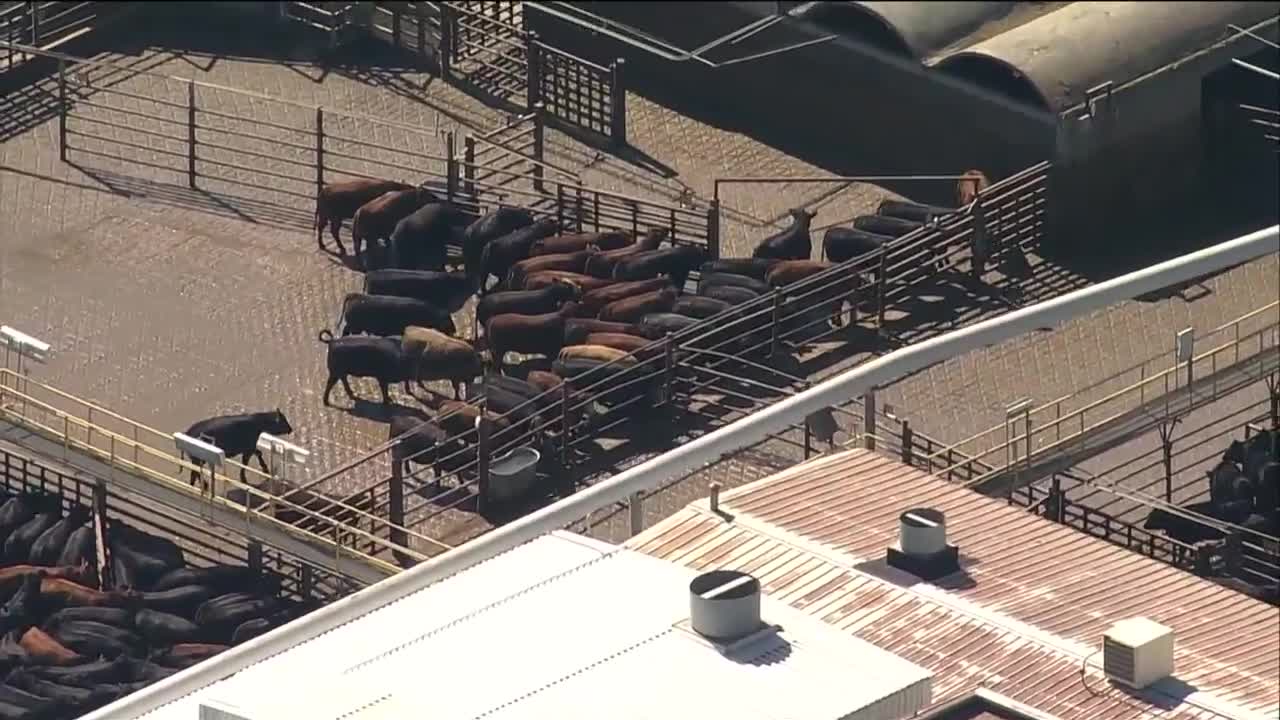GREELEY, Colo. — A meatpacking plant in Greeley will remain closed for two weeks after two workers died of the novel coronavirus.
On Monday, Colorado Gov. Jared Polis said he had talked with the vice president of JBS and that the plant would be closing "for a period of time."
Polis said the company is working with the state and county health officials.
Polis said the plant will return the same way as much of the rest of the economy — after mass testing and personal protective equipment (PPE) for those who may have been exposed. He said they are currently talking with the company about "aggressive testing" and a containment strategy so they can resume the critical work that customers and ranches rely on.
Polis said he is not worried about this short-term closure impacting the food supply.
"I’m confident that by prioritizing national food security, there will be no disruptions to the food supply," he said.
He also said Vice President Mike Pence told him that the federal government will provide tests and PPE to help the JBS plant situation.
As of now, there is no evidence that customers may be at risk if they purchased meat that had been at the facility, Polis said.
Last week, JBS said it planned to invest $1 million in testing for its works and to clean and sterilize the entire plant before it reopened on Tuesday. A couple days later, they canceled the testing altogether . And less than a day after that, Polis announced that the plant would close until further notice.
As of Friday afternoon, two workers at the meatpacking plant have died of the novel coronavirus, according to Kim Cordova, the president of the United Food and Commercial Workers (UFCW) Local 7 union.
On Friday, she said at least 42 union members who work at JBS and eight non-union employees have tested positive for COVID-19. Of those, five were hospitalized. She said the union believes there “may be significantly more individuals at the plant who are carrying the virus but may either by asymptomatic, not tested, or afraid to come forward as they are not eligible for sick pay.”



